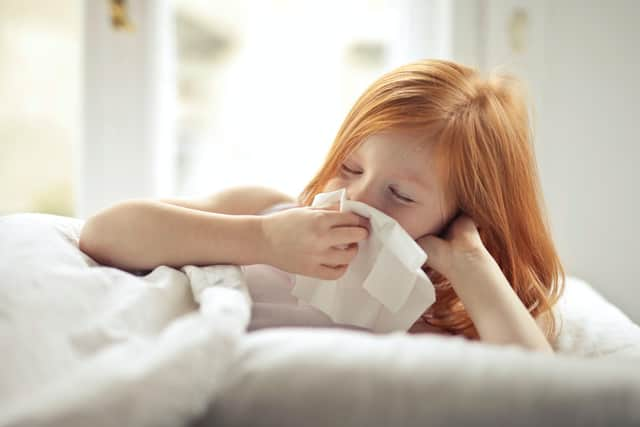Respiratory Syncytial Virus: How to spot the signs in your children in Doncaster this winter
and live on Freeview channel 276
RSV is a very common virus and almost all children are infected with it by the time they’re two years old – it is important to note that it is well documented and is not a novel or new illness, you may have heard it called different things, such as bronchiolitis.
Clinicians at both Doncaster Royal Infirmary and Bassetlaw Hospital saw an increase in respiratory illness in children as lockdown restrictions eased earlier in the year and families begin to mix once again, with cases higher than usual during the summer months and further increases are expected throughout winter. It is important to note that while some of the symptoms may appear similar, this is not related to COVID-19.
Advertisement
Hide AdAdvertisement
Hide AdParents are encouraged to look out for symptoms of severe respiratory infection in at-risk children, including a high temperature of 37.8°C or above (fever), a dry and persistent cough, difficulty feeding and rapid or noisy breathing (wheezing).


To help raise awareness and empower parents, a short film has been created featuring Nadine Cooper, Senior Paediatric Respiratory Nurse at Doncaster and Bassetlaw Teaching Hospitals (DBTH), to discuss RSV, the signs and symptoms, and the best course of action to follow if you become concerned about a little one.
She said: “While respiratory infections are common in children, last winter saw fewer infections in younger people due to COVID-19 restrictions. This means that many will not have developed immunity and may be at higher risk of severe illness. We may also see more cases than in a typical season. For the majority of children, these illnesses will not be serious and they will soon recover following rest and plenty of fluids.”
Most cases of bronchiolitis are not serious and clear up within two to three weeks, but parents should contact their GP or call NHS 111 if:
Their child struggles to breath.
Advertisement
Hide AdAdvertisement
Hide AdTheir child has taken less than half their usual amount during the last two or three feeds, or they have had a dry nappy for 12 hours or more.
The child has a persistent high temperature of 37.8C or above.